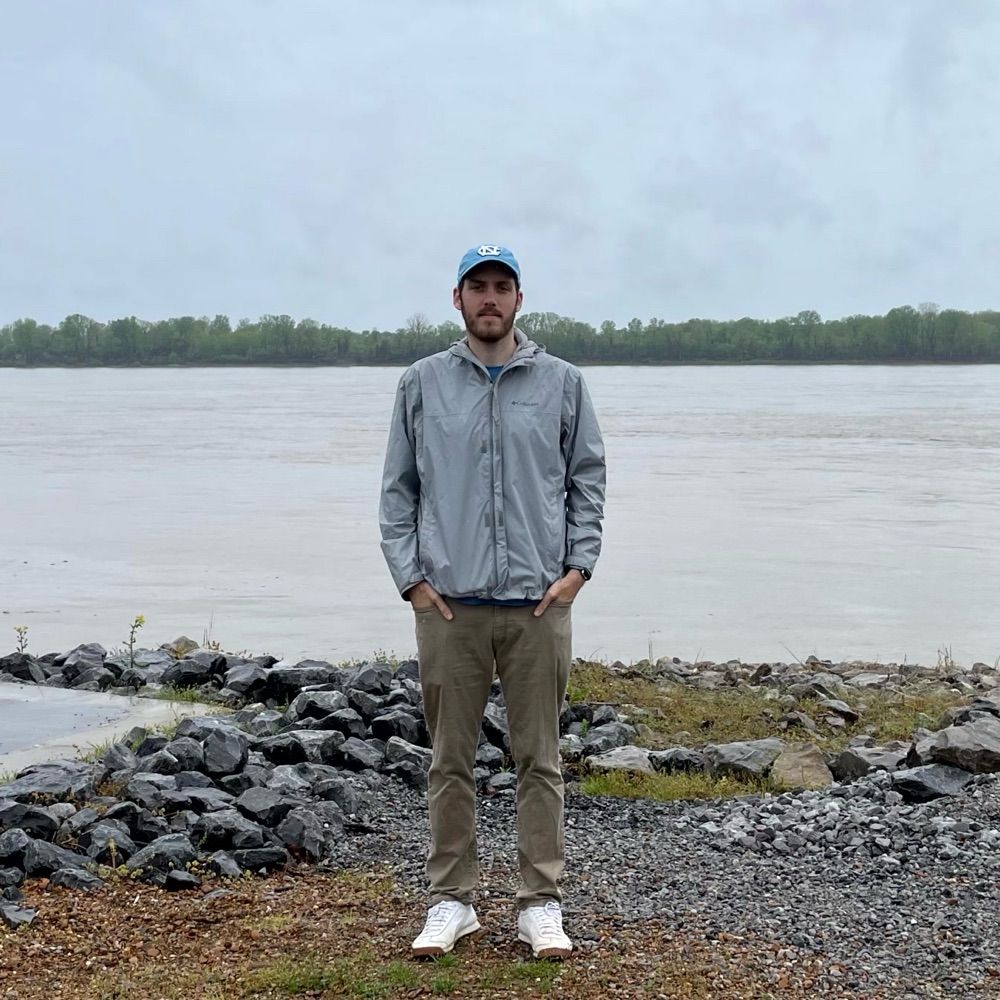'Disc Golf Anywhere' is an ongoing series. It explores ideas for fitting innovative disc golf facilities in nooks and crannies where more communities can enjoy the benefits of the game, such as increasing physical and mental health, turning neglected spaces into bustling hubs of activity, and affordability (89% of courses are free to play).
In Germany, Disc Golf Is Still Little-Known
Back when German Michael Kobella started playing disc golf in the 1990s, the game was virtually unknown in his country. Kobella himself – who has won both Advanced Masters and Grandmasters titles at the PDGA Amateur Disc Golf World Championships – picked it up mostly to keep enjoying a disc sport after his local ultimate team fell apart.
"I found at least ten new players and we were practicing and competing after a while against other teams in Germany," Kobella said of his ultimate group. "We met in a public park for Sunday afternoon games. After some months I got tired of calling people to come to training sessions to keep the ultimate team alive."
Instead, Kobella and a friend started making their own object disc golf course in the park, playing it with Frisbees.
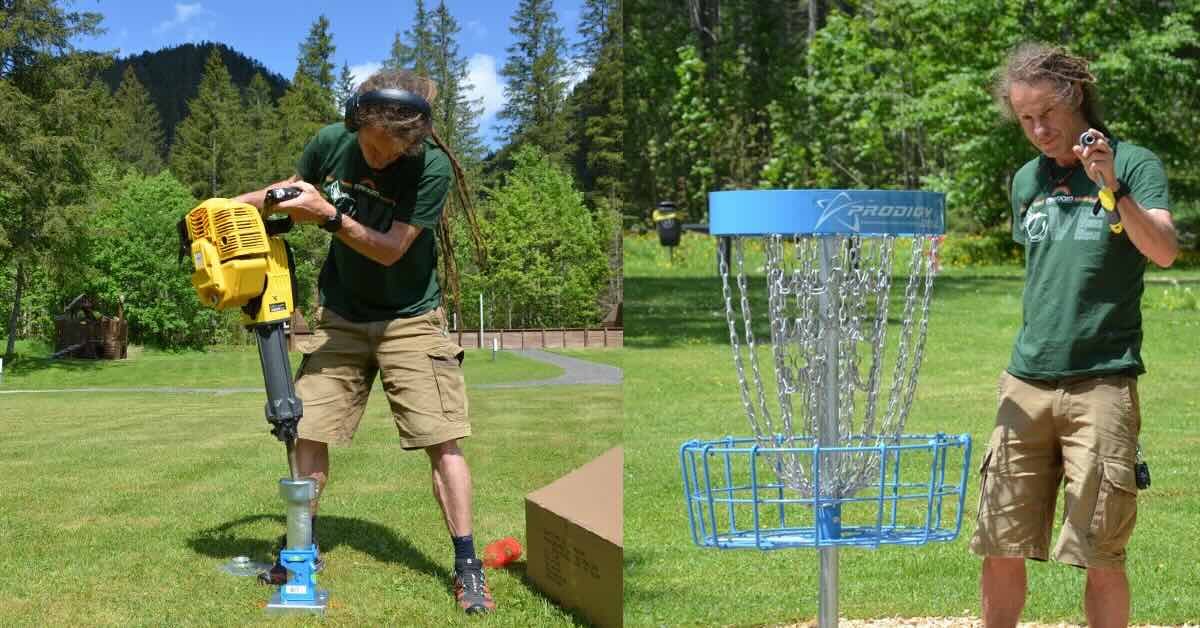
"We played on trees and trash cans as targets and made an 18-hole course with par 6s and more," said Kobella. "As we had never played with others, we felt free to invent."
They eventually ordered disc golf discs from the U.S. company Innova by telephone and had to wait months for them to make the trip overseas. When they got interested in tournaments, they headed to Switzerland to play them.
Disc golf's popularity and accessibility in Germany has grown quite a bit in the decades since. But compared to Nordic countries Denmark, Finland, Iceland, Norway, and Sweden – as well as their neighbor Estonia – where it's almost a given that people have heard of disc golf, the game remains extremely niche in Kobella's homeland.
For example, the Nordic country with the lowest number of disc golf rounds per capita logged in 2024 with the UDisc app, Denmark, still had well over twice the number of rounds logged in Germany – despite the fact that Germany's population is 14 times larger than Denmark's.
The company Kobella works for as a disc golf facility designer, the Bavaria-based World of Discs founded by Stefan Minkwitz, aims to change that. Their motto and company ambition is to make it so that "Jeder kennt DiscGolf," which translates to "Everyone knows disc golf."
And they have a surprising tactic for reaching that big goal: Thinking small.
What Makes It Hard to Grow Disc Golf in Germany?
Nearly every time he reaches out to potential customers about starting a new project, Kobella is reminded just how far disc golf still has to go in Germany.
"If we connect with a town mayor, most of the time we have to explain a lot," Kobella said. "Some have heard about disc golf, but most haven't."
But even when local leadership is interested, finding the right spot for the game can be difficult.
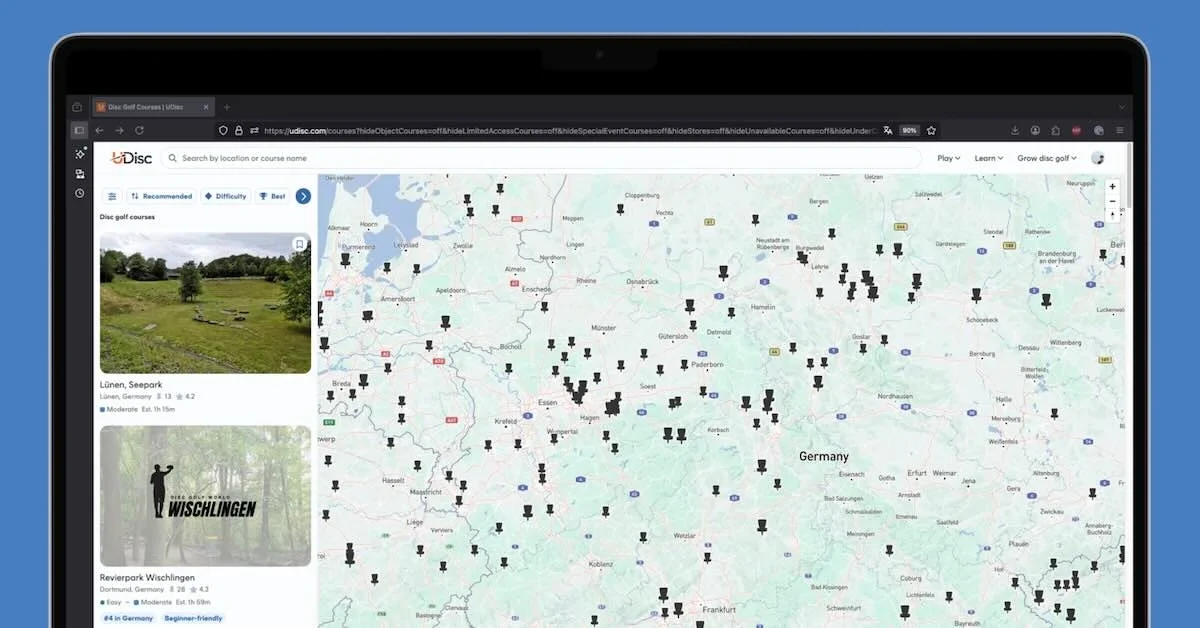
In World of Disc's home state of Bavaria in Germany's southeast, for instance, most land near towns and cities is already owned either by private parties or by agricultural companies according to Kobella. And while public parks can sometimes work, many are so full when the weather is nice that installing a typical disc golf course in them is out of the question for reasons of safety and ease-of-play.
"Unused land is mostly remote," Kobella said. "In Germany, we are not in the position they are in Scandinavia. Scandinavian people know disc golf baskets and a lot of people play. They play in remote places with courses just because the ones close-by are packed."
But Kobella and World of Discs don't think that putting in remote course after remote course is the spark that will ignite a German disc golf boom. They believe the game won't grow unless people come across it repeatedly in their everyday lives.
"If disc golf is unknown by the majority of the people, you have to bring disc golf to these places where people meet, drive by, and get attracted," said Kobella. "These places must be reachable by public transport and bicycles."
To do this, World of Discs has started focusing on getting small, beginner-friendly disc golf facilities in urban settings and other areas with high foot traffic.
"It is much easier to find a small plot of land and build a small disc golf course," Kobella said. "It's much easier to involve people in a short-time attraction. If we want to grow, we must think about what kind of disc golf course our [partners], kids, grandparents, and everyone who has never thrown a disc before would like to play."
Using Small Disc Golf Installations to Spur Awareness & Growth
While creating traditional disc golf courses with very short holes and small footprints can be an effective way to fit the game into smaller spaces, World of Discs has developed fun disc golf experiences that require even less land and less investment from communities.
They call these DiscMatch and DiscTricts. DiscMatch can fit in a volleyball court (162 square meters/1,743 square feet) and a DiscTrict in a handball court (800 square meters/8,611 square feet).
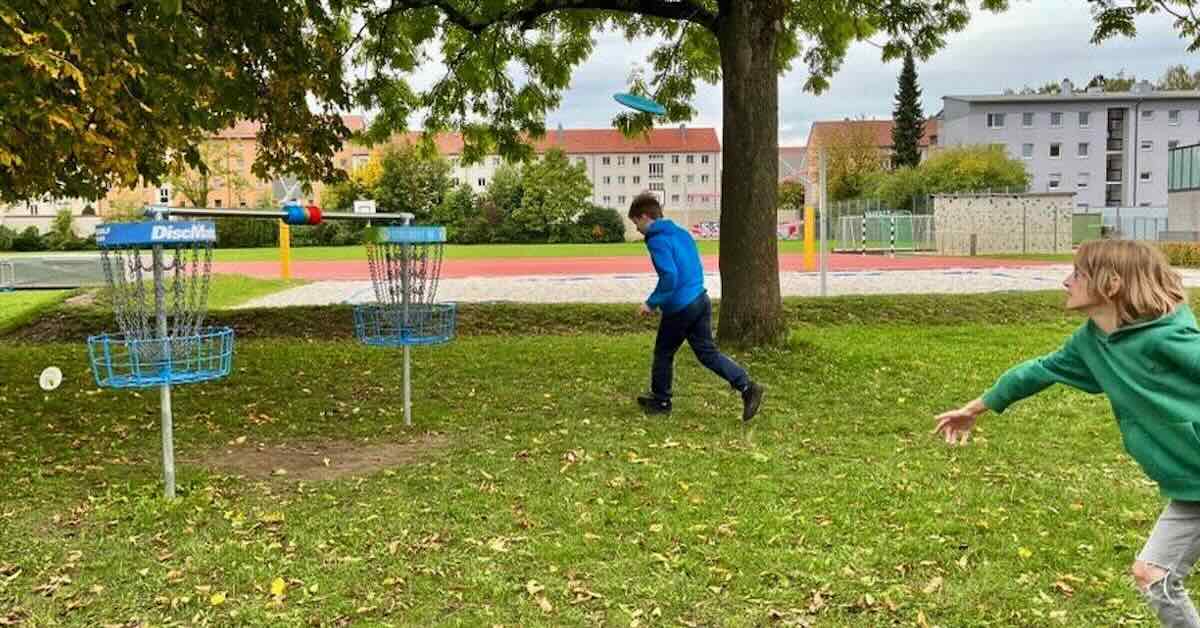
The smallest, DiscMatch, consists of two baskets connected by a pole with five sliding rings (think of score counters on foosball tables), two blue on one side, two red on the other, and a golden ring in the middle. Signage explains three games that two players or groups can enjoy using the setup. The most basic of these has players use one disc to throw to a basket from a predetermined location, moving a ring to their side for each made putt. The first player who moves the golden ring to their side wins.
Kobella has seen a mobile version of DiscMatch draw large crowds.
"We attract people with DiscMatch at music festivals," said Kobella. "Thousands of people are interested in side-events and food. Most of them have never heard about disc golf. Give them a disc and let them try to shoot at a basket – make a competition and you'll have a line waiting. So we have thousands of first-time disc-in-a-basket users."
DiscTricts are short installations of several baskets custom-designed for small plots in tight areas – for example, as an amenity at the Alpenhotel Ammerwald in Austria. A combination of signage and provided accessories allows players to make their own games and serves as a great way to introduce the sport to people on vacation. They often don't have specific holes or fairways and allow for some personal creativity.
In both Aichach and Kaufering, Germany, there are DiscMatch and DiscTrict setups. The DiscTricts create six-hole courses using just two baskets and fit in spaces a little over half an acre/quarter hectare.
"Disc golf is mainly drive, approach, and putt, and DiscTricts serve these parts of the game for practice and to make a game out of it," Kobella said. "We tell the newbies how to score. Why does disc golf have to be only nine or 18 holes?"
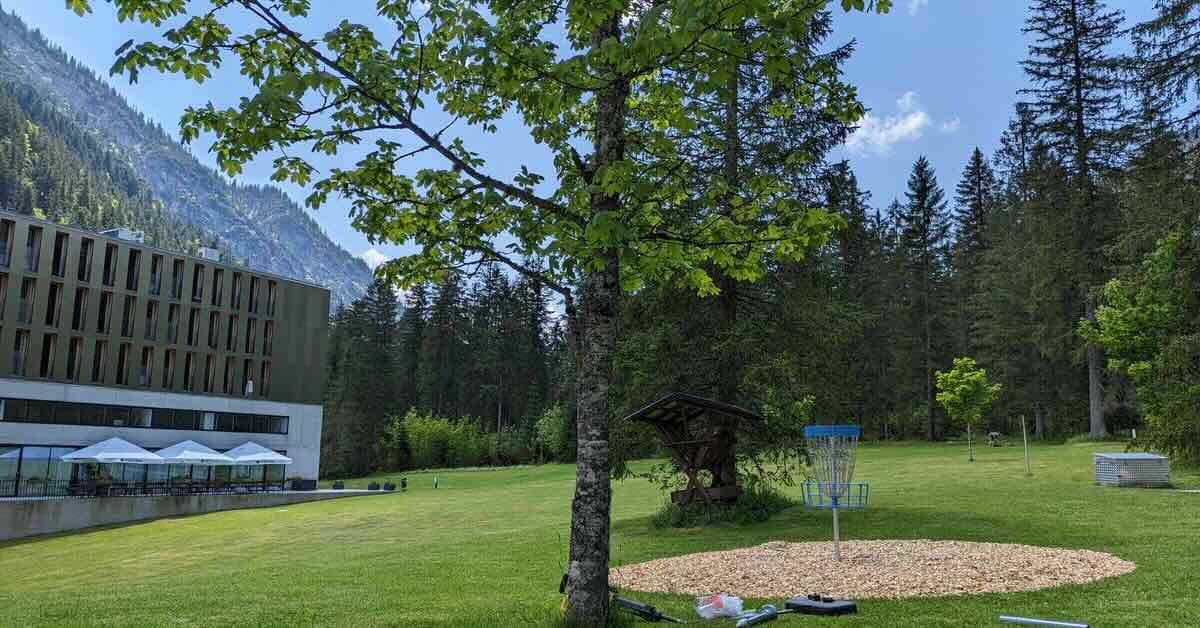
You can think of DiscTricts as a disc golf version of the neighborhood half-court basketball goal or half-pitch soccer setup – a small place to practice all the fundamental skills of a sport in accessible, high-traffic areas. World of Discs has slotted many DiscTricts in unused green areas near university facilities, park greenways, and playgrounds.
They've also installed a number of more traditional but small and beginner-friendly courses in places like Wunsiedel and the famous spa town Baden-Baden.
Are These Smaller Disc Golf Facilities Working?
According to Kobella, World of Discs' more compact disc golf experiences have been quite popular and attracted many new players to the game in Germany and Austria. A more exotic undertaking at a hotel in Greece where they built the country's second-ever disc golf course is also going well.
Kobella is keenly aware that smaller options are crucial to disc golf's development, from both a player and a designer point-of-view.
"If you want to grow the sport, you cannot wait till the biggest-you've-ever-dreamed-of course will one day approach," said Kobella. "Take small chances and bigger ones will follow. You will get experience in building courses and your approach to anyone who can offer a plot of land will be smarter."
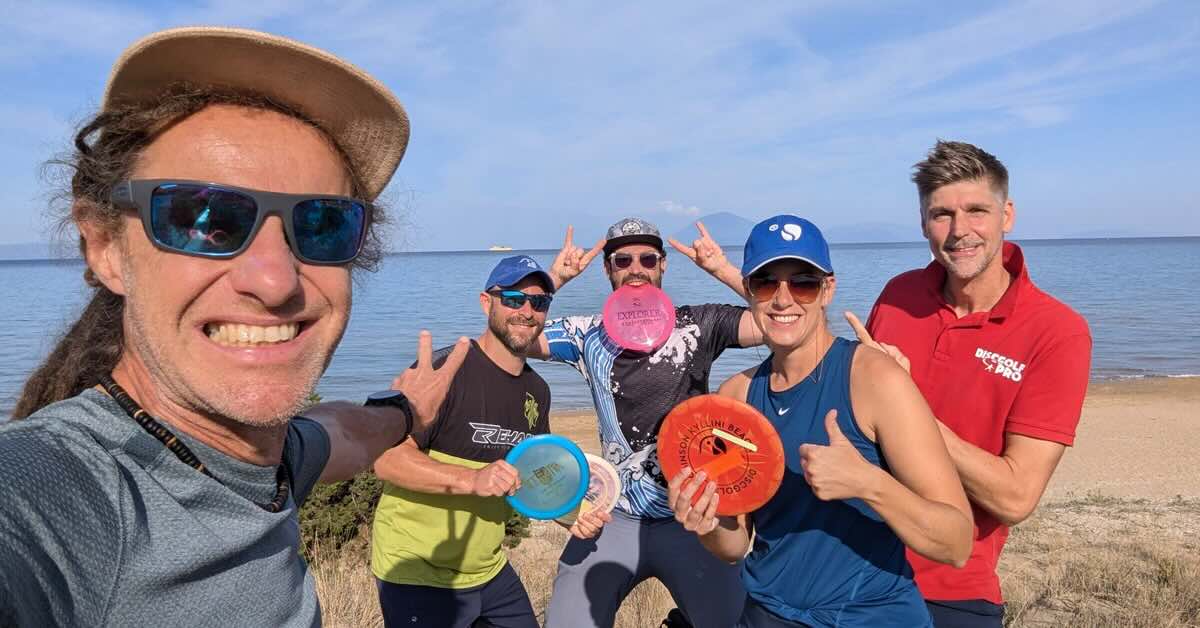
Along with being a springboard to larger facilities, short courses need to exist to help most new players feel comfortable as they dip their toes into the game.
"People fear to fail by themselves," Kobella said. "Give them advice and teach others to give advice. We can see that there is a demand for weekly lessons, and it is very easy to teach disc golf at smaller courses. You don't have to carry your stuff as far, you can see all participants, play games, and let them practice basic approaches and putts. On larger courses you will separate people."
Enthusiastically marketing smaller, more beginner- and budget-friendly disc golf setups has so far worked well for World of Discs, and Kobella sees this as a viable way to realize a vision he started forming back when he first started throwing Frisbees at trash cans almost 30 years ago.
"It has been a lifetime dream to bring a disc golf course to everyone," said Kobella. "When I first started, there was no course within an hour of driving. Now, 14 years later, it is still a matter close to my heart and my job, and I will keep going until the UDisc map is covered with disc golf spots in central Europe."
